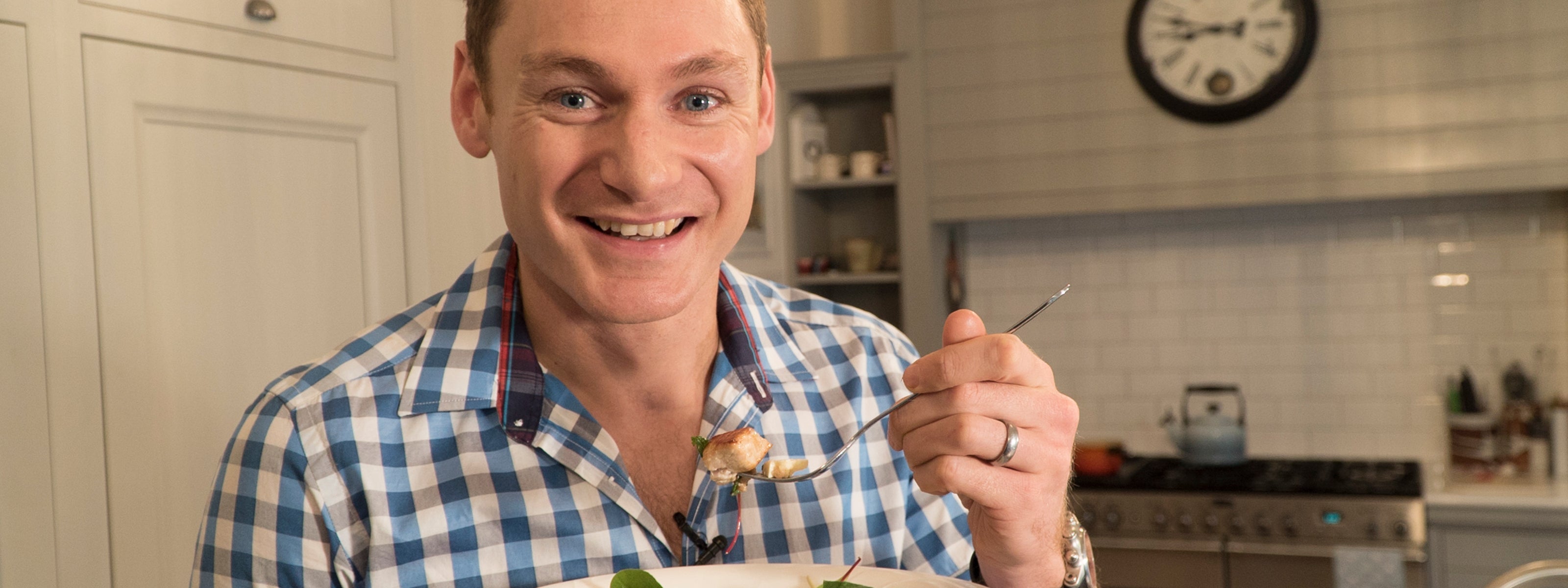Watch how David Gillick powers up his afternoon with this quick recipe.
David Gillick is a retired international athlete, winner of Celebrity MasterChef and author of David Gillick's Kitchen.
Udo's Oil is available from Health Stores, Pharmacies and Online
Follow David Gillick’s Top 5 Tips to keep fuelled for longer.
1. The Basic’s
Don’t skip meals - Aim to eat every 2/3 hours Your main meals should always aim to be balanced; breakfast, lunch and dinner should contain a good source of protein, slow release (Low GI) carbohydrates, vegetables and small amount of fat. Enjoying a good breakfast will help manage hunger levels throughout the day and also provide a great energy kick start to the day. To keep you feeling fuller for longer, one recommendation would be to eat a slow releasing carbohydrate breakfast that includes a source of protein. An example would be slow releasing oats and Greek yogurt, a drizzle of Udo’s Oil omega blend with nuts and seeds which provide a source of protein. This will stop you reaching for the biscuit tin around 11am. Other options are eggs, grilled bacon, smoked salmon, wholegrain bread, low sugar muesli.
2. Portion Control
The easiest way to give you a rough idea of portion size is to use your hand.
1 fist size portion of protein - Breast of chicken, steak, salmon darne or couple of eggs
1 thumb length of fat - Feta cheese, avocado or real butter
2 fist size portions of vegetables - Good variety of cauliflower, broccoli, peppers etc. More colour the better!
1 fist of carbohydrates - Best option is to aim for slow releasing carbohydrates such as sweet potato, oats, quinoa or at least try keep things wholegrain.
3. Snacks
Snacking in between meals is very important as it maintains blood sugar levels which manage energy levels, mood and productivity. It is important that these snacks are not high sugar foods (High GI) such as chocolate, sweets, crisps and fizzy drinks. Good snacks include Greek yogurt, nuts, seeds, nut butters (i.e. Almonds, Peanuts, Cashews etc.), oat biscuits and rice cakes. Snacking on fruits and vegetables is also a good option, but aim to strike a balance between both and don't just stick to one food type all the time. Fruit contains a natural sugar called fructose which, like all carbohydrates, can affect insulin levels so it is important to aim for balance. Certain fruits, such as berries, have lower levels of fructose and are very high in antioxidants which help fight illness and aid recovery from exercise. With the increase in smoothies and juices be aware that they may contain high levels of fructose, so aim for smoothies with a combination of fruit and vegetables and if made without a juice, then all the better. If making at home you can use different options such as almond milk, coconut milk or water for the base.
4. Go for good fat not low fat
Be aware of so called “low fat” foods as they will generally be very high in sugar. Items such as low fat yogurt contain a large amount of sugar. Best option is Greek yogurt or natural yogurt without flavour. Add your own fruit, it’s better. Get to know the food you’re buying; the overall goal is to eat less processed foods. There is not a long list of ingredients on an apple!! If it ran, swam, flew or grew, eat it! More and more research is suggesting we need good fats, omega 3,6 and 9, in our diets, therefore including food such as olives, avocados, nuts, seeds, fish and nut butters are essential. I use Ultimate Oil Blend to ensure I am getting enough omegas, it’s easy to add to a salad or smoothie and stays fresh in the fridge for months. Fats are great for fat loss, body composition, skin, hair, as well as being found to help reduce risk of inflammation, support stronger bones and brain function.
5. Hydration
Drinking water throughout the day is essential for health and wellbeing. Some of the key benefits include protecting organs and tissue, dissolving minerals and nutrients for use by the body, moistens tissue in the eyes, nose and mouth, supports kidney and liver health by flushing away toxins, carries oxygen and nutrients to cells and provides lubrication to joints. The aim is to drink 2 litres over the course of the day.
Udo's Oil is available from Health Stores, Pharmacies and Online




